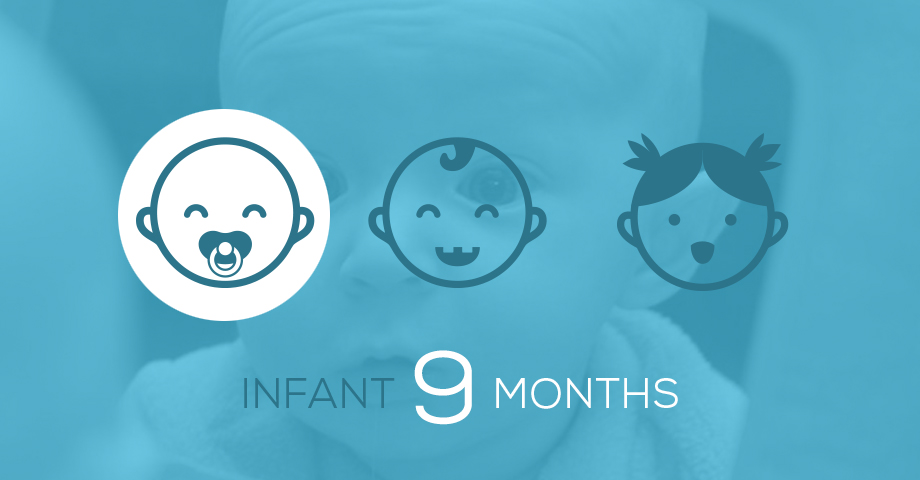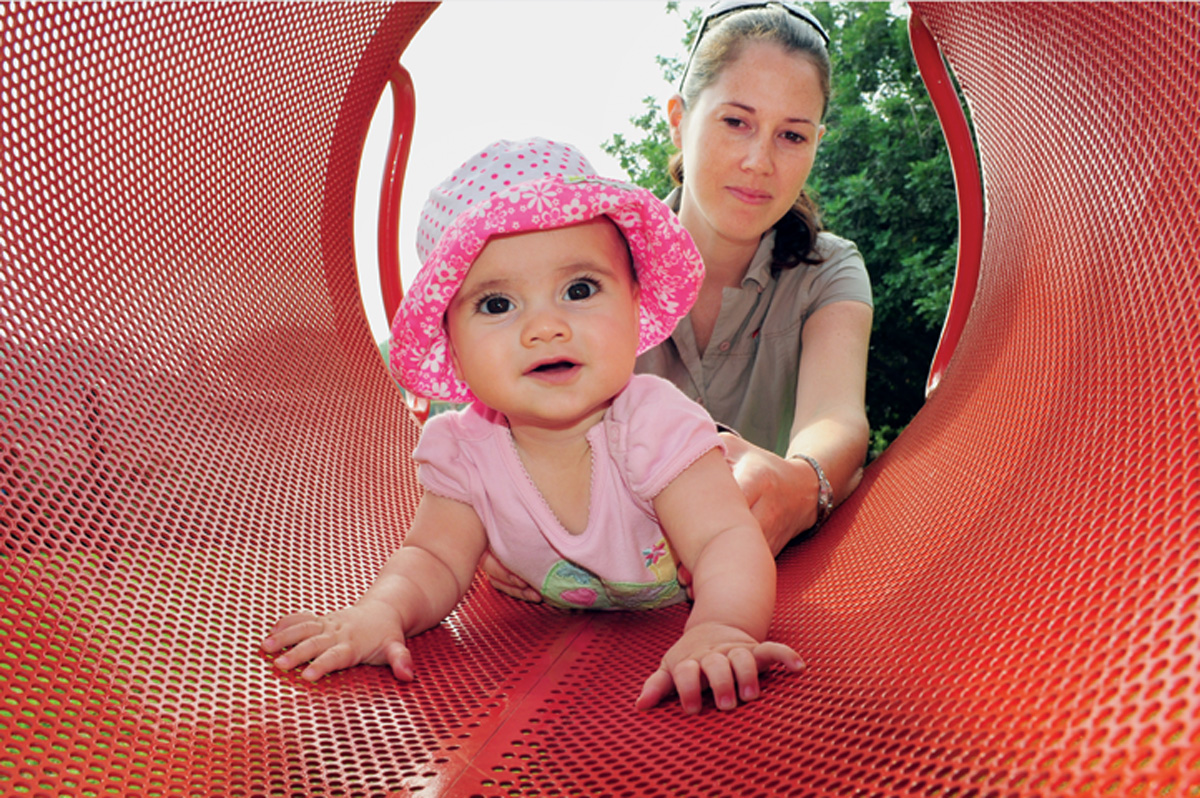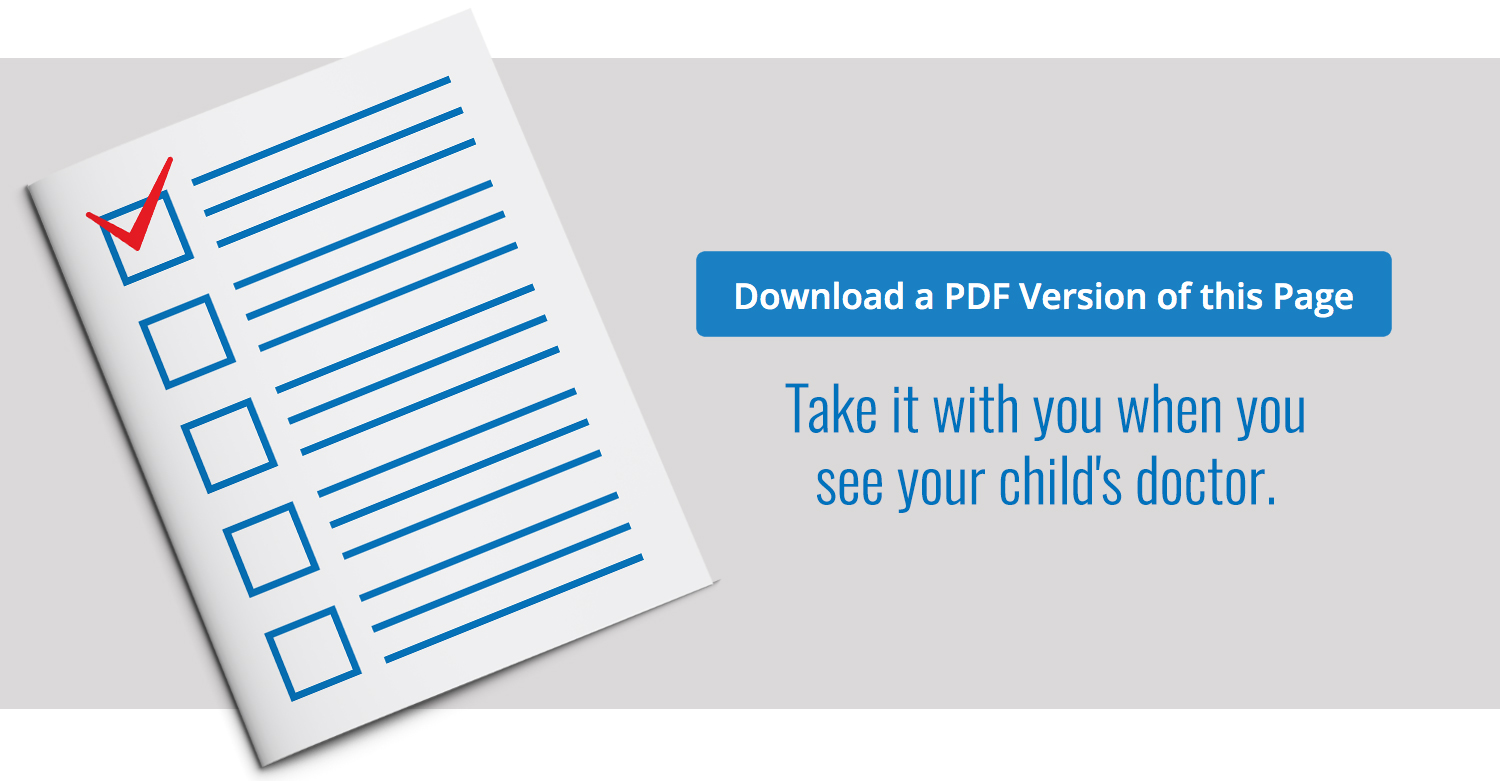
How your child plays, learns, speaks, acts and moves offers important clues about your child’s development. Developmental milestones are the things most children (75% or more) can do by a certain age.
Check the milestones your child has reached by the end of 9 months, and talk with your child’s doctor at every visit about the milestones your child has reached and what to expect next.

What Most Babies Do at This Age:
Social / Emotional
- Is shy, clingy, or fearful around strangers
- Shows several facial expressions, like happy, sad, angry, and surprised
- Looks when you call her name
- Reacts when you leave (looks, reaches for you, or cries)
- Smiles or laughs when you play peek-a-boo
Language / Communication
- Makes different sounds like “mamamama” and “babababa”
- Lifts arms up to be picked up
Cognitive (learning, thinking, problem-solving)
- Looks for objects when dropped out of sight (like his spoon or toy)
- Bangs two things together
Movement / Physical Development
- Gets to a sitting position by herself
- Moves things from one hand to her other hand
- Uses fingers to “rake” food towards himself
- Sits without support
IT’S TIME FOR DEVELOPMENTAL SCREENING! |
||
|
At 9 months, your baby is due for general developmental screening, as recommended for all children by the American Academy of Pediatrics. Ask the doctor about your baby’s developmental screening. Other important things to share with the doctor:
|
||
Concerned about your child’s development?
You know your child best. Don’t wait. If your child is not meeting one or more milestones, has lost skills he or she once had, or you have other concerns, act early. Talk with your child’s doctor, share your concerns, and ask about developmental screening.
If you or the doctor are still concerned:
- Ask for a referral to a specialist who can evaluate your child more; and
- Call your state or territory’s early intervention program to find out if your child can get services to help. Learn more and find the number at cdc.gov/FindEI.
For more on how to help your child, visit cdc.gov/Concerned.
Help Your Baby Learn and Grow
As your baby’s first teacher, you can help his or her learning and brain development. Try these simple tips and activities in a safe way. Talk with your baby’s doctor and teachers if you have questions or for more ideas on how to help your baby’s development.
- Repeat your baby’s sounds and say simple words using those sounds. For example, if your baby says “bababa,” repeat “bababa,” then say “book.”
- Teach your baby to wave “bye-bye” or shake his head “no.” For example, wave and say “bye-bye” when you are leaving. You can also teach simple baby sign language to help your baby tell you what he wants before he can use words.
- Play games, such as peek-a-boo. You can cover your head with a cloth and see if your baby pulls it off.
- Play with your baby by dumping blocks from a container and putting them back in together.
- Play games with your baby, such as my turn, your turn. Try this by passing a toy back and forth.
- “Read” to your baby. Reading can be talking about pictures. For example, while looking at books or magazines, name the pictures as you point to them.
- Limit screen time (TV, tablets, phones, etc.) to video calling with loved ones. Screen time is not recommended for children younger than 2 years of age. Babies learn by talking, playing, and interacting with others.
- Find out about choking risks and safe foods to feed your baby. Let him practice feeding himself with his fingers and using a cup with a small amount of water. Sit next to your baby and enjoy mealtime together. Expect spills. Learning is messy and fun!
- Ask for behaviors that you want. For example, instead of saying “don’t stand,” say “time to sit.”
- Help your baby get used to foods with different tastes and textures. Foods can be smooth, mashed, or finely chopped. Your baby might not like every food on the first try. Give her a chance to try foods again and again.
- Say a quick and cheerful goodbye instead of sneaking away so your baby knows you are leaving, even if he cries. He will learn to calm himself and what to expect. Let him know when you return by saying“Daddy’s back!”
Content provided by the Centers for Disease Control and Prevention’s “Learn the Signs. Act Early.” material and are not a substitute for a standardized, validated developmental screening tool.



